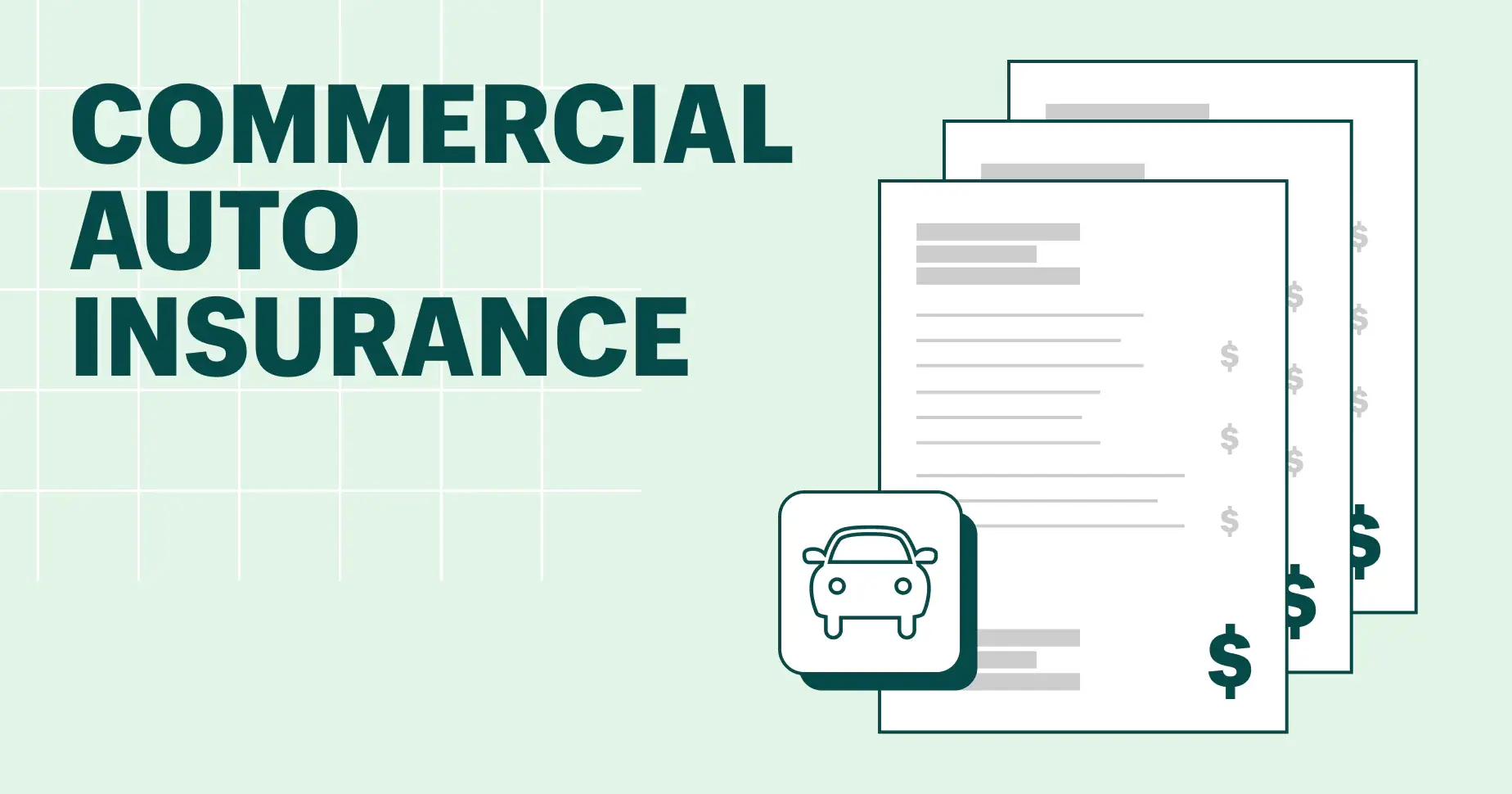Why Do I Need Commercial Auto Insurance In 2024 | An Ultimate Guide?
When it comes to running a business that relies on vehicles for its operations, whether it’s a fleet of delivery trucks, a single company car, or even your personal vehicle used for work purposes, commercial auto insurance is a crucial component of your risk management strategy. This comprehensive guide will delve into the intricacies of commercial auto insurance, explaining why it’s essential, how it differs from personal auto insurance, and what factors influence the cost of coverage.
Contents
- 1 Understanding Commercial Auto Insurance
- 2 Understanding Commercial Auto Insurance
- 3 Differentiating Commercial and Personal Auto Insurance
- 4 Reasons You Need Commercial Auto Insurance
- 5 Types of Commercial Auto Insurance
- 6 Factors Affecting Commercial Auto Insurance Costs
- 7 How to Obtain Commercial Auto Insurance
- 8 Frequently Asked Questions
- 9 Conclusion
Understanding Commercial Auto Insurance
Commercial auto insurance is designed to protect your business vehicles and assets from a range of risks, providing coverage for accidents, damage, and liability. This article aims to elucidate why commercial auto insurance is not just a prudent choice but often a legal necessity for businesses that rely on vehicles in their day-to-day operations.
Understanding Commercial Auto Insurance
Commercial auto insurance is a specialized policy designed to protect businesses from financial loss resulting from accidents involving company vehicles. It covers a range of vehicles, including cars, trucks, and vans used for work purposes. This insurance typically includes liability coverage, property damage protection, and coverage for medical expenses. Understanding and having the right commercial auto insurance is essential to shield your business from potential risks on the road.
Differentiating Commercial and Personal Auto Insurance
The first step in understanding the need for auto insurance is recognizing how it differs from personal auto insurance. While personal auto insurance is designed for individuals and their personal vehicles, commercial auto insurance is intended for businesses that use vehicles for work-related tasks. The key distinctions between the two lie in the scope of coverage and the types of vehicles insured.
Personal auto insurance typically covers the policyholder and their family members for personal use of their vehicles. On the other hand, auto insurance covers business-owned vehicles, vehicles used for commercial purposes, and often employees who drive them.
Reasons You Need Commercial Auto Insurance
Commercial auto insurance is essential for several reasons, especially if you operate a business that involves vehicles. Firstly, it provides financial protection in case of accidents, property damage, or injuries involving your business vehicles. Without this coverage, you may be personally liable for substantial expenses, potentially jeopardizing your business and personal assets.
Secondly, commercial auto insurance helps maintain your business’s reputation. In the event of an accident, having proper insurance demonstrates your commitment to responsibility and safety, which can reassure customers, partners, and employees.
Thirdly, it’s often a legal requirement. Many jurisdictions mandate commercial auto insurance for businesses that use vehicles for their operations. Failing to comply with these requirements can result in fines, license suspension, or legal consequences.
Additionally, this insurance can be tailored to your specific business needs, allowing you to cover various vehicles, from company cars to trucks, and even specialized vehicles. This flexibility ensures that you get the right coverage for your unique circumstances.
Legal Requirements
One primary reason for obtaining commercial auto insurance is legal compliance. Many jurisdictions require businesses to have commercial auto insurance for their vehicles. Failing to meet these requirements can result in fines, penalties, and even the suspension of business operations.
Protecting Your Business Assets
Accidents can happen at any time, and if your business owns and operates vehicles, you’re exposed to the risk of accidents, theft, vandalism, and other unforeseen events. Auto insurance safeguards your business assets, ensuring that the financial impact of such incidents is mitigated.
Employee Protection

Commercial auto insurance not only covers vehicles but can also extend to protect your employees who are driving for work purposes. This aspect is particularly important if your business involves delivery services or has a team of salespeople on the road. Higher deductibles can reduce premiums but will increase your out-of-pocket expenses in the event of a claim.
Customizable Coverage
One of the significant advantages of commercial auto insurance is its flexibility. You can tailor your coverage to suit the unique needs and risks of your business. This means you can choose the type of coverage, coverage limits, and deductibles that align with your operations and budget.
Types of Commercial Auto Insurance
Liability Insurance: Liability insurance is a fundamental component of commercial auto insurance. It covers costs associated with bodily injury or property damage that your business vehicle may cause to others in an accident.
Physical Damage Coverage: This type of coverage protects your business vehicles against physical damage due to collisions. It includes repairs or replacement of the vehicle.
Comprehensive Coverage: Comprehensive coverage goes beyond collision-related damage. It covers non-collision incidents such as theft, vandalism, or damage from natural disasters.
Uninsured/Underinsured Motorist Coverage: This coverage is designed to protect your business if an accident is caused by an uninsured or underinsured driver. It covers medical expenses, lost wages, and property damage.
Cargo Insurance: If your business involves transporting goods or products, cargo insurance is crucial. It covers the loss or damage of cargo during transit.
Factors Affecting Commercial Auto Insurance Costs
The cost of your commercial auto insurance is influenced by several factors, including:
Vehicle Type and Usage: The type of vehicles your business uses and how they are used can significantly impact insurance rates. Heavy commercial trucks or vehicles used for long-haul transportation generally have higher premiums.
Driver History: The driving history and records of your employees who operate the vehicles play a crucial role in determining insurance costs. A history of accidents or traffic violations can lead to higher premiums.
Business Location: Where your business is located can affect insurance costs. Urban areas with higher traffic and accident rates may lead to higher premiums.
Coverage Amount: The more extensive the coverage, the higher the premium. You must strike a balance between comprehensive coverage and affordability.
How to Obtain Commercial Auto Insurance
Research and Compare
The first step to obtaining commercial auto insurance is researching various insurance providers and policies. Comparing quotes and policy terms will help you make an informed decision.
Consult an Insurance Agent
An insurance agent experienced in commercial auto insurance can provide valuable guidance. They can assess your business’s specific needs and recommend appropriate coverage.
Tailor Your Policy
Work with your chosen insurance provider to customize your policy to your business’s unique requirements. Ensure that you have the right types and amounts of coverage.
Frequently Asked Questions
Why is commercial auto insurance important?
Commercial auto insurance is crucial for businesses that rely on vehicles as a fundamental part of their operations. There are several reasons why it is essential. First and foremost, it often complies with legal requirements. Many jurisdictions mandate that businesses have commercial auto insurance to operate legally. Failing to meet these requirements can result in fines and the suspension of business activities.
What is the purpose of commercial insurance?
Commercial insurance aims to protect businesses from financial losses by covering various risks, including property damage, liability, and employee-related issues. It provides safeguards that are specific to business operations.
What is the main difference between personal and commercial auto insurance?
The primary distinction lies in the vehicle’s use. Personal auto insurance is for personal use vehicles, while commercial auto insurance covers vehicles used primarily for business purposes. Commercial policies often have higher coverage limits and are tailored to business-related risks.
What is the difference between business and commercial auto insurance?
Business auto insurance and commercial auto insurance essentially refer to the same coverage. They both protect vehicles used for business purposes, such as deliveries or transporting employees. The terminology may vary by insurance provider, but the coverage is similar.
Conclusion
Commercial auto insurance is not just a wise investment; it’s often a necessity for businesses relying on vehicles. From legal compliance to asset protection and employee coverage, the reasons for obtaining commercial auto insurance are manifold. By understanding the nuances of this type of insurance and tailoring your coverage to your business’s needs, you can navigate the road ahead with confidence, knowing that you have a robust safety net in place for your vehicles and your business.







